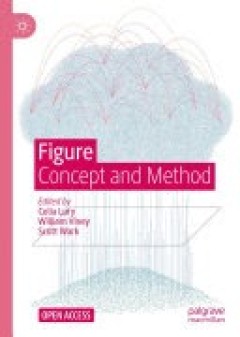Filter by

Figure Concept and Method
This open access book shows how figures, figuring, and configuration are used to understand complex, contemporary problems. Figures are images, numbers, diagrams, data and datasets, turns-of-phrase, and representations. Contributors reflect on the history of figures as they have transformed disciplines and fields of study, and how methods of figuring and configuring have been integral to practi…
- Edition
- 1
- ISBN/ISSN
- 978-981-19-2476-7
- Collation
- -
- Series Title
- -
- Call Number
- XV, 283

Humanitarian Journalists : Covering Crises from a Boundary Zone
This book documents the unique reporting practices of humanitarian journalists – an influential group of journalists defying conventional approaches to covering humanitarian crises. Based on a 5-year study, involving over 150 in-depth interviews, this book examines the political, economic and social forces that sustain and influence humanitarian journalists. The authors argue that – by ampl…
- Edition
- -
- ISBN/ISSN
- 9781032407678, 9781003356806
- Collation
- -
- Series Title
- -
- Call Number
- -

Ethical journalism : adopting the ethics of care
Buku ini mengusung argumen bagi media berita untuk memimpin dalam memerangi ancaman utama bagi masyarakat Amerika, termasuk ketidakadilan rasial, kesenjangan ekonomi, dan perubahan iklim dengan mengadopsi "etika kepedulian" dalam praktik pelaporan. Dengan meneliti bagaimana liputan berita tradisional tentang ras, ekonomi, dan perubahan iklim telah didedikasikan untuk fakta-fakta yang lugas, pen…
- Edition
- -
- ISBN/ISSN
- 9781003140337
- Collation
- 1 online resource (vi, 192 pages)
- Series Title
- -
- Call Number
- 174.907 MAT e

Kommunikation von Aufsichtsratsvorsitzenden
In diesem Open-Access-Buch präsentiert Sandra Binder-Tietz eine umfassende Analyse der Kommunikation von Aufsichtsratsvorsitzenden börsennotierter Unternehmen. Deren komplexe kommunikative Rolle wird dabei erstmals systematisch erschlossen. Aus der externen Perspektive werden die vielschichtigen Anforderungen der relevanten Stakeholder wie Investoren, Aktionärsschützer, Stimmrechtsberater u…
- Edition
- 1
- ISBN/ISSN
- 978-3-658-37717-5
- Collation
- -
- Series Title
- -
- Call Number
- XXX, 500

Mapping selfies and memes as Touch
This open access book offers a rich and nuanced analysis of digitally networked socialities as culturally meaningful relationships of Touch. Focusing on the ways Touch is practised in everyday social interactions serves as a basis for how Touch is understood as multiply significant – physically, emotionally, intellectually and politically. Andreallo initiates a map of the fundamentals of Touc…
- Edition
- 1
- ISBN/ISSN
- 978-3-030-94316-5
- Collation
- -
- Series Title
- -
- Call Number
- XI, 116

Die Zukunft von Privatheit und Selbstbestimmung
Die in diesem Open-Access-Buch zusammengeführten interdisziplinären Untersuchungen des „Forums Privatheit“ gehen der Frage nach, wie sich die Verwirklichungsbedingungen von Privatheit und Selbstbestimmung durch die Digitalisierung aller Lebensbereiche radikal ändern. Nahezu jede Lebensregung hinterlässt Datenspuren, ermöglicht vielfältige und intensive Datensammlungen über Menschen, …
- Edition
- 1
- ISBN/ISSN
- 978-3-658-35263-9
- Collation
- -
- Series Title
- DuD-Fachbeiträge
- Call Number
- XXIX, 304

Discourses of global queer mobility and the mediatization of equality
- Edition
- -
- ISBN/ISSN
- 9781003087960
- Collation
- -
- Series Title
- -
- Call Number
- -
- Edition
- -
- ISBN/ISSN
- 9781003087960
- Collation
- -
- Series Title
- -
- Call Number
- -

Digital Platform Regulation
This Open Access volume provides an in-depth exploration of global policy and governance issues related to digital platform regulation. With an international ensemble of contributors, the volume has at its heard the question: what would actually be involved in digital platform regulation?’. Once a specialised and niche field within internet and digital media studies, internet governance has i…
- Edition
- 1
- ISBN/ISSN
- 978-3-030-95220-4
- Collation
- -
- Series Title
- Palgrave Global Media Policy and Business
- Call Number
- XVII, 319

Health Crises and Media Discourses in Sub-Saharan Africa
This is an open access book which brings together leading scholars and critical discourses on political, economic, legal, technological, socio-cultural and systemic changes and continuities intersecting media and health crises in Sub-Saharan Africa. The volume extensively discusses COVID-19 but it also covers other epidemics, such as malaria, HIV/AIDS as well as “silent” health crises such …
- Edition
- 1
- ISBN/ISSN
- 978-3-030-95100-9
- Collation
- -
- Series Title
- -
- Call Number
- XVIII, 283

New Perspectives in Critical Data Studies
This Open Access book examines the ambivalences of data power. Firstly, the ambivalences between global infrastructures and local invisibilities challenge the grand narrative of the ephemeral nature of a global data infrastructure. They make visible local working and living conditions, and the resources and arrangements required to operate and run them. Secondly, the book examines ambivalences …
- Edition
- -
- ISBN/ISSN
- 978-3-030-96180-0
- Collation
- -
- Series Title
- Transforming Communications – Studies in Cross-Media Research
- Call Number
- XXV, 473
 Computer Science, Information & General Works
Computer Science, Information & General Works  Philosophy & Psychology
Philosophy & Psychology  Religion
Religion  Social Sciences
Social Sciences  Language
Language  Pure Science
Pure Science  Applied Sciences
Applied Sciences  Art & Recreation
Art & Recreation  Literature
Literature  History & Geography
History & Geography